Making the Best of Your Fellowship: Practical Advice
When embarking on a new journey, it’s important to have a roadmap to provide clear guidance on your path ahead. In addition to carrying your roadmap, it’s helpful to receive advice from others who may have taken a similar journey. Perhaps they experienced bumps in the road or had to take an alternate route or, better yet, maybe they know some great places to sightsee along the journey. Hence, we sought advice from MFP grantee organizations and current fellows on how you, as a new fellow, can make the best of your fellowship. We hope their tidbits of wisdom help you experience smooth sailing on your journey over the next year.
MINORITY FELLOWSHIP PROGRAM GRANTEES
American Psychological Association MFP Team
Andrew Dailey, MDiv, MS, Director
Janice Haskins, MSP, Clinical Program Manager
Zoe Garber, Program Coordinator
It is a pleasure to welcome new fellows to the MFP family, and we are excited to support them with reaching their goals. Our team wanted to share a few tips and best practices for fellows about how they can get the most out of their MFP fellowship. We would advise fellows to:
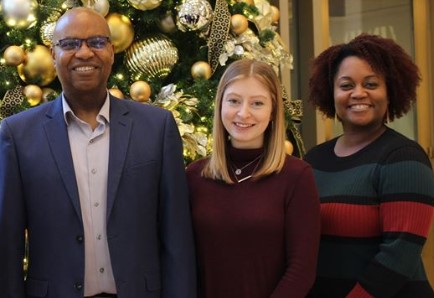
- Help ensure the MFP continues to grow and develop by participating in feedback/evaluation surveys.
- Take advantage of MFP webinars, events, and training opportunities.
- Stay up to date with email correspondence.
- Initiate conversations with your mentor(s).
- Establish and maintain relationships with your cohort and the broader MFP network.
- Connect with your MFP staff contact(s) with questions about individual fellowship details.
- Arrange informational interviews with MFP alumni.
- Request past webinar slides from MFP staff to increase your knowledge of specific topics (e.g., networking).
- Keep your advisors and university faculty up to date with MFP news, milestones, events, etc.

Dr. Duy Nguyen
MFP Alumni and MFP Director, Council on Social Work Education
As a graduate student during the summer of 2004, I eagerly opened a letter that notified me of my MFP award. It is fair to say that the fellowship has permeated all aspects of my career development. I relished being a fellow and tried to make the most of the opportunities afforded by the fellowship while juggling academic and family demands. Now, as the Director of the CSWE MFP, I see how fellows experience the program. With these dual perspectives in mind, I offer a few suggestions for making the most of the fellowship.
- The MFP is affirming and validating both in terms of what you have accomplished to this point, and the potential for what you will do in the future. Each of our paths make a difference in behavioral health issues affecting racial/ethnic minority groups differs, so pat yourself on the back when you need to and keep going on your path.
- There are many opportunities in the MFP that are unique to each profession and grantee organization. Find the time and resources in your program to learn something new – it can be a skill, a method, or a practice approach. Reflect on your skillset honestly and identify an area that you can improve upon.
- With a rich history dating back to the 1970’s, one of the MFP’s strengths is its people. Take advantage of the opportunities to use the network to connect with mentors, with your cohort, with others. Mentoring is vital to making a difference in racial/ethnic minority behavioral health. Learning from mentors and expanding your networks will help you navigate rough patches that you may encounter in your career. Your cohort today will be tomorrow’s colleagues, and they can help cheer you on or problem solve situations that arise.
These are a few suggestions to make the most of your fellowship. I’d love to connect and hear what you think! Feel free to email me at dnguyen@cswe.org or connect on Twitter @cswemfp.
Dr. Frieda Outlaw
MFP Alumni and MFP Educational Consultant, American Nursing Association
One of the things that excites us most is to have fellows give presentations at the local, state, national, and international levels, and to publish articles in clinical, policy, and research journals. These activities really feature the wonderful work that the fellows are doing in the public and justifies the investment that the SAMHSA Minority Fellowship Program is making. It's an honor to be a fellow, and your good work proves why it's important to have this program. Everybody benefits from the Minority Fellowship Program; you benefit from being a fellow, we [grantee organization] benefit by training future practitioners, and SAMHSA benefits when you demonstrate the impact of your contributions on health disparities and mental health and substance abuse. It is important to leverage the exposure within and across disciplines to other fellows that the MFP provides. These relationships can result in research opportunities and other scholarly activities as well as support systems that last a lifetime and increase productivity. Finally, take the opportunity to learn how to navigate SAMHSA and all their grant programs. Many academic institutions know about NIMH and NIH grant funding, but SAMHSA is more community based, so there’s an opportunity for you to explore the different centers and services. If there's one in particular that looks interesting to you, explore it, ask questions, and find out who the leadership is. Start thinking about how to apply for grants early in your career and if we at MFPCC can help you navigate that process; we'd be happy to help.
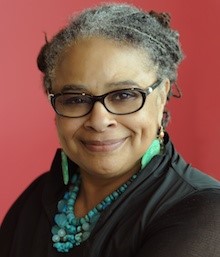
MINORITY FELLOWSHIP PROGRAM FELLOWS
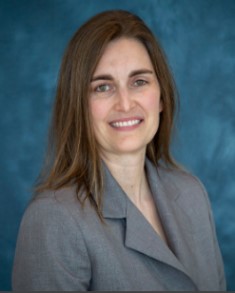
Rebecca Olson, BA
MFP-Y Master’s Fellow (2018-2019), American Psychological Association. Pursuing an MEd in School Counseling. Anticipated graduation Dec. 2019.
Pay attention, be open to the experience of others, be genuine and a little vulnerable. You don't have anything to prove, but a lot to learn. Connect with your mentors and be willing to ask questions. Try to make one or two solid connections with peer fellows and do your best to foster the new friendships after the conferences are done.
Alyssa Hufana, MA, BA
MFP Doctoral Fellow (2018-2020), American Psychological Association. Pursuing a PhD in Counseling, Clinical, and School Psychology. Anticipated graduation June 2021.
Take advantage of making connections and establishing genuine, authentic relationships with your fellow cohort. One of the most valuable aspects of my time as a fellow has been making lifelong friends and family within MFP that have supported me in professional and personal endeavors. It has been life changing to gain support and encouragement from peers in other programs across the nation to share professional advice on internship applications and interviews, talk about professional identity, challenges and milestones in our own personal lives, and check in on one another in our own journey. Don't be afraid to reach out to peers in your cohort and get to know one another! They have the opportunity to be some of your biggest allies, confidants, and support throughout your graduate school journey if you are open.
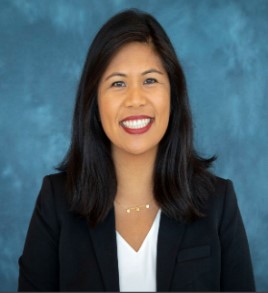
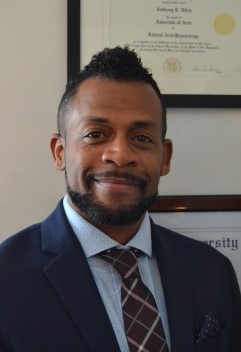
Anthony Hitch, MA, BA
MFP Doctoral Fellow (2018-2020), American Psychological Association. Pursuing a PhD in Clinical Psychology. Anticipated graduation May 2022.
- MFP Training Advisory Committee (TAC) mentors are truly interested in your professional development and general well-being. Contact your assigned mentor to share both successes and challenges to foster a strong relationship. Additionally, feel free to draw upon the knowledge and wisdom of all TAC mentors. In my experience, they have all been more than willing to provide additional support.
- Participate in as many MFP-offered trainings, seminars, programs, and events as possible. As an MFP fellow, you have access to a wealth of resources that will improve the way you practice and set you apart from others in the field. With this information and knowledge, you will be armed to make meaningful contributions to the improvement of mental health services for people of color.
- Stay connected with your MFP cohort. Your MFP cohort is a special group of peer colleagues who can offer timely advice, support, and lifelong friendship. The shared journey of becoming a member of such an important fellowship of professionals can be an incredibly bonding experience unlike any other.
